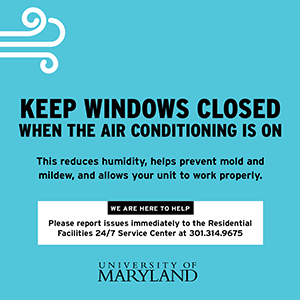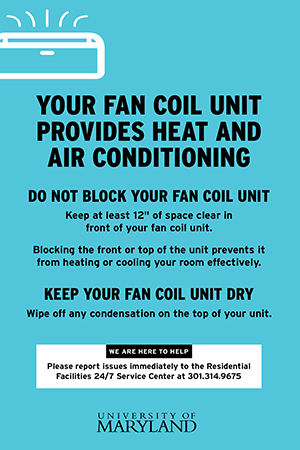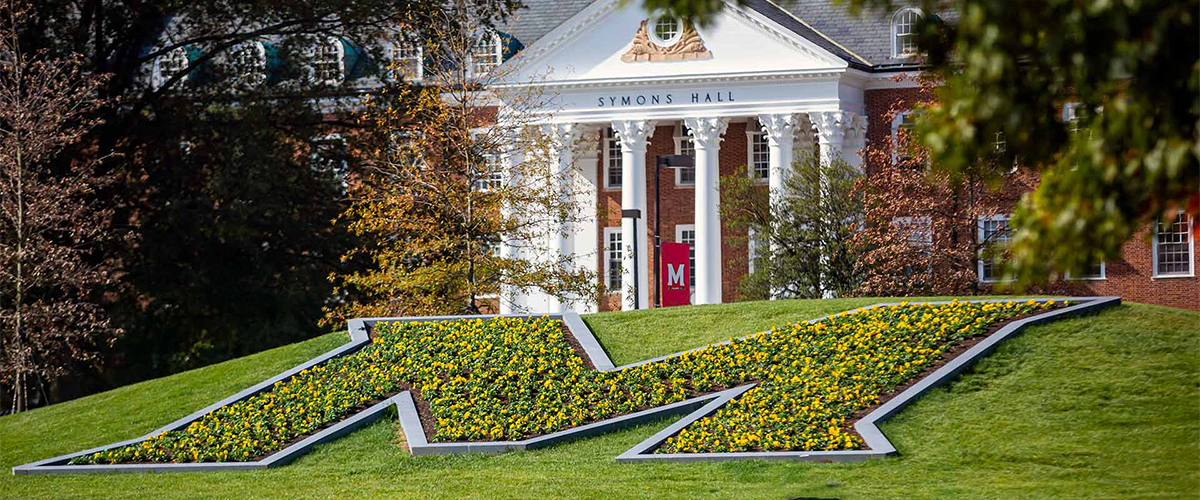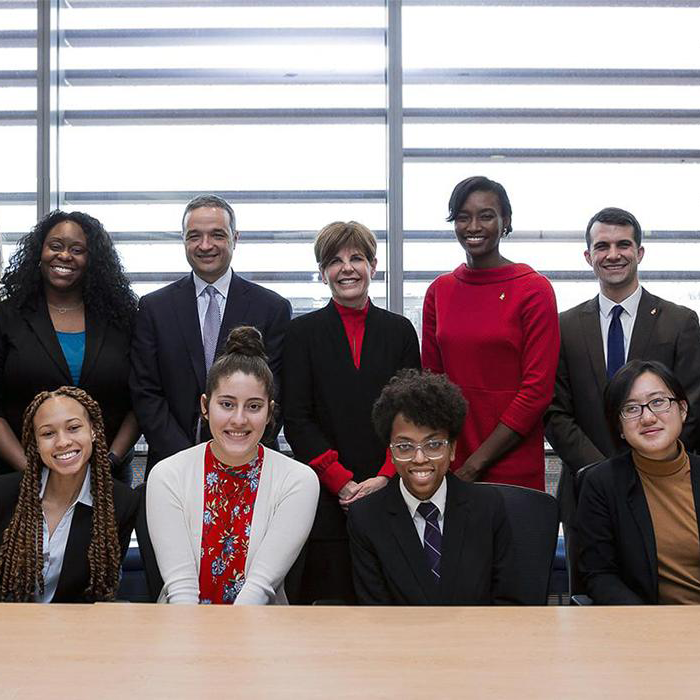- Home
- Moisture Control Efforts
Moisture Control Efforts
Introduction
The health and safety of our university community is of paramount importance. Units across the university are working together to address moisture and mold on our campus, with care and concern for the well-being of the faculty, staff and students.
When our area experienced record-breaking heat, rain and humidity during the fall of 2018, we saw a significant increase in reports of mold in our residence halls and fraternity and sorority chapter houses. We thoroughly remediated the mold and hired two firms to provide an independent external review of the mold remediation processes and humidity control measures. There have also been reports of mold in academic buildings that face persistent moisture issues. Ongoing efforts have been in place to prevent mold in these areas. Mold grows on porous surfaces when the temperature and relative humidity are within a certain range. Hence, essential to mold control is moisture control.
The University’s comprehensive moisture control initiative can be found below.
Moisture Control Efforts
The safety, health, and well-being of students, faculty, and staff is a matter of utmost concern for the University of Maryland. The university has implemented several efforts to address high humidity that may occur in the future.
Moisture Control Plan for Residents
The Departments of Resident Life, Fraternity & Sorority Life, and Residential Facilities developed a multi-faceted approach to ensure moisture control and dehumidification in residence halls. Highlights of the plan include:
- Assessed and evaluated approximately 2.2 million square feet of residential living space, 38 residence halls, and 21 University-owned fraternity and sorority chapter houses.
- Over 100 projects in 19 residence halls and 11 University-owned fraternity and sorority chapter houses were identified for implementation and were completed by fall 2019. Projects were identified based on each building’s specific technical needs, and included window replacements, dehumidifiers, piping insulation, roof replacements, HVAC upgrades, foundation waterproofing, and more.
- Portable dehumidifiers were installed in 16 air-conditioned residence halls and 8 University-owned fraternity and sorority chapter houses.
- Humidity sensors have been placed in Elkton and Bel Air Hall as part of a pilot program to help proactively monitor temperature and humidity. The sensors take humidity and temperature readings and that data is transmitted wirelessly to Residential Facilities staff to monitor.
- Implemented extensive training for Residential Facilities staff at all levels to recognize and identify potential mold, and an enhanced standard operating procedure for identifying and inspecting mold includes safety awareness and technical training and expanded training for specialists.
- Created an educational campaign to partner with our residents to help prevent mold and mildew and to educate them on the equipment installed in their rooms, including posters and window clings.




How residents can help:
-
Close windows when the air conditioning is on. This keeps humidity out, helps prevent mold and mildew, and lets your A/C unit work properly.
-
Keep furniture and personal belongings at least 12” (1 floor tile) away from the front, top, and sides of the heating/air conditioning units in your room. Blocking the unit prevents it from circulating air in the room and heating or cooling your room effectively.
-
Use your dehumidifier properly, if you have one in your room (see Dehumidifier Guide below)
-
Wipe off condensation if noticed on the air conditioning unit.
-
Hang wet clothing and towels to dry properly.
-
Report issues immediately to the Residential Facilities 24/7 Service Center at 301.314.9675.
Facilities Management launched a MositureWatch Program, following a cross-campus group meeting to develop options for long-term solutions to address moisture and humidity in non-residential buildings across campus, including Woods Hall. Highlights of the program include:
- Approximately 50 manual sensors in strategic locations within select academic buildings on campus will be replaced with smart sensors. The smart sensors provide real-time monitoring of temperature and relative humidity, and alert Facilities Management personnel who are on call around the clock if humidity readings surpass 70%. Upon receiving a notification, a technician will inspect the area to begin assessing and addressing the issue. Additional smart sensors will be installed in other locations as needed.
- Building that were identified by Facilities Management for the MoistureWatch Program were selected because they have areas with challenging ventilation conditions. For example, some contain small, compartmentalized office spaces with limited air flow, while others have spaces that sit below grade level or have window air-conditioning units.
- New waterproofing and foundation drains were installed on the west side of Woods Hall to channel rainwater away from the building. Other efforts to prevent mold in the building include floor fans, commercial dehumidifiers, window air-conditioning (AC) unit servicing, and window sealing. Offices have also been equipped with portable dehumidifiers that are inspected and emptied, on a regular basis, and air purifiers to supplement the window ACs.
- The university has set-up an additional portal so that anyone can report air quality or mold concerns to Environmental Safety, which responds to all reports.
- Over the next five years, Facilities Management will invest annually in building system (roofs, foundation, HVAC, windows) repairs and replacements that will address humidity and moisture infiltration.
Actions and Communications Fall 2018
As of October 10, 2018, mold remediation efforts in our residence halls were complete and all Elkton Hall students were back in their rooms. The Department of Residential Facilities continued to respond individually to isolated reports of mold. Additional information about this issue and the university’s subsequent actions can be found here.




